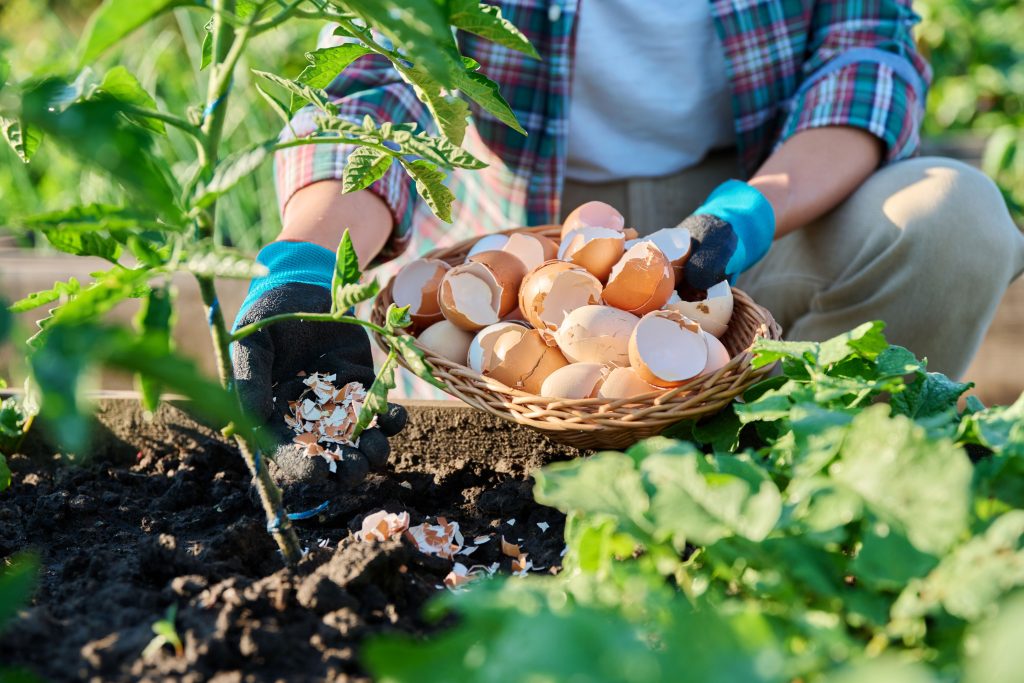:max_bytes(150000):strip_icc():format(jpeg)/GettyImages-2162066878-5dceaa2d9a5a4f65a167f33b623a6801.jpg)
Skip the store-bought fertilizers and start turning a few ingredients you probably already have into natural plant food. Whether you’re growing houseplants, garden plants, or a lawn, homemade organic fertilizers can deliver the nutrients your plants require, while being easy on your budget and the planet. Here are 8 simple but effective DIY fertilizers you can make at home, plus tips on how and when to use them.
1. Compost Tea
Compost is a versatile soil amendment that can be blended into the soil or used as a top dressing to add nutrients to gardens and improve soil structure. However, if you brew compost in water and then strain out the solids, you can create your own compost tea and use it as a liquid fertilizer on both indoor and outdoor plants. Compost tea can be applied either as a soil drench or foliar spray; however, it may not contain all the nutrients your plants need, so it’s best to use it in conjunction with another organic fertilizer.
2. Worm Casting Tea
Worm casting tea is made using a similar process to compost tea, but it’s brewed from worm castings rather than compost. Castings are more nutrient-dense than compost, which makes the resulting liquid even more beneficial for your plants. Worm casting tea can be applied weekly or monthly as a soil drench or foliar spray, depending on your plants.
3. Old Coffee
Coffee grounds are sometimes spread around gardens or mixed into the soil to enrich it and deter slugs, snails, and other pests. However, if you dilute leftover brewed coffee with water in a 1:1 ratio, it also serves as a pest deterrent and mild fertilizer for both indoor and outdoor plants. Keep in mind that coffee has a slightly acidic pH and works best on acid-loving plants, such as blueberries, azaleas, and certain succulents.
4. Rice Water
Rice water is sometimes included in skin care products, but it can also be used as a plant fertilizer to add nutrients and beneficial microbes to the soil. To make rice water, collect the water used to wash rice, dilute it with fresh water, and then use it as a soil drench around your plants. Since rice water is typically produced in limited quantities, this fertilizer tends to work best on houseplants and container gardens. It offers even more plant benefits if you ferment it before use.
5. Aquarium Water
Growers often apply well-aged manure to the soil around plants to enhance their growth. However, if you live in the city and happen to have a fish tank, you can employ a similar concept by using aquarium water to feed your plants. Like manure, aquarium water contains nutrients from fish waste that can encourage plant growth.
For food safety, use aquarium water only on ornamental plants and avoid using it altogether if you’ve recently treated your aquarium for fish diseases or algae.
6. Comfrey
Comfrey is often grown as an ornamental plant that attracts pollinators to gardens. However, if you collect and chop comfrey leaves and ferment them in a bucket of water for a few weeks, the result is a liquid fertilizer rich in nitrogen, potassium, phosphorus, and other essential nutrients for both indoor and outdoor plants.
Fermented comfrey water can be strong, so dilute it at a ratio of 1 part comfrey fertilizer to 10 parts water before application.
7. Eggshells
Have lots of eggshells lying around? Calcium-rich eggshells can be added to gardens and houseplant soil to prevent issues like blossom end rot and support plants with higher-than-average calcium needs, such as most nightshades, brassicas, and peperomia. To prevent eggshells from becoming smelly or attracting pests, let them dry completely before use and then grind them into the finest powder possible for faster plant absorption.
8. Seaweed Tea
Using seaweed in the garden may not be a practical solution if you live far away from the sea. However, if you have easy access to seaweed, you can gather it yourself after getting proper permissions to do so. Make sure to only collect loose seaweed that’s detached from rocks and is no longer growing.
Then give that seaweed a rinse, and ferment it just like comfrey leaves to create a liquid fertilizer that contains essential micronutrients that boost plant growth. Most plants love seaweed fertilizer, but it’s particularly beneficial for vegetable gardens, as well as flowering plants like roses.

